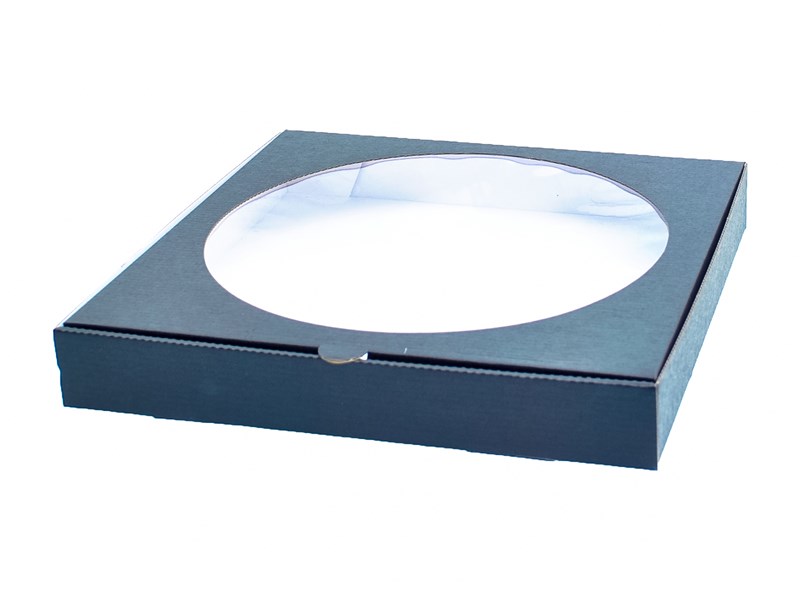Veronica has more than 20 years in senior management roles, leading marketing and sales strategies that include primary care consumables, pharmaceuticals, natural health care supplements, consumer and safety products within B2B and B2C.
Are pizza boxes recyclable?

Pizza holds an unusual place in the sustainable food packaging story and it’s a real talking point for us at Berica. The millions of pizza boxes produced and discarded each year for takeaway purposes are almost a footnote to the central characters of burger and hot chip containers and baking boxes.
Strange then, considering more than five billion pizzas are sold around the world each year and an estimated 350 slices are consumed each second. In a market predicted to reach US$233.26 billion in 2023 (marketresearch.com), the popular meal presents a troubling, if “delicious”, headache for recyclers globally.
Why? It’s best typified by two questions raised recently by two of our fantastic customers; ‘Is it true that you can’t recycle pizza boxes?’ and secondly, ‘Are all pizza boxes food-safe?’
Well, the answer is actually quite confusing and a bit more complex than you’d think, so we have put this guide together to try to answer these questions and explain why public attitudes, behaviours, geography and more than play their part.
New Zealand’s love affair with pizza really came to prominence in the mid-1970s, and 50 years later it’s now a firm any-night-of-the-week favourite.
Most packaging for the transport of pizzas is made of cardboard, as this is both cost effective, easy to work with and lightweight, while maintaining adequate structural integrity to hold and deliver pizzas.
Unofficially, Dominos can take the credit for introducing the corrugated box in the US in the 1960s. The corrugated section is there to insulate, to keep the pizza in place and absorb fat.
So, the truth is that the “humble” pizza box is not humble at all – it’s a marvel of design. They’re portable and lightweight and hold the product perfectly. They arrive at a food outlet flat, can be neatly stacked, and made up in seconds – and they absorb grease and moisture when your pizza is in transit.
This is important in addressing,
Question No. 1: ‘Is it true that you can’t recycle pizza boxes?’
First up, think about pizza takeaway leftovers. There’s always grease, oil staining, and bits of food stuck on the bottom and the under lid of the box.
If some of the box doesn’t have any stains and are oil and grease-free, then easy – you can tear the box in half and recycle the lid. The rest of the box can go into compost, but not everyone does this. Let’s be honest, how many consumers really have the mindset or the inclination to take the time to scrape off that fingernail-sized piece of congealed cheese or that sliver of pepperoni? The result is millions of boxes needlessly heading to landfill, and it’s a problem.
Same-product recyclability really depends on where you live in New Zealand. The Auckland Council website lists pizza boxes as recyclable, but ‘remove any leftover food’. That’s great, but how clean is clean? Oil and grease can't be removed from the cardboard during the pulping process.
From December 2020, Central Otago District Council announced that ‘pizza boxes, no matter how clean, will not be accepted for recycling in your yellow bin. Dunedin, Palmerston North, and Taupo say that they accept cardboard pizza boxes with no food leftovers in the recycling bins. As for Waimakariri and Christchurch, the two say that the boxes should be put in the organics bin,’ states the Mil-tek website.
So, aside from moving to a pizza box-friendly district, the message is, check your local council website, clean the box as much as you can, and hit and hope. It’s not really an adequate solution.
Question No. 2: Are all pizza boxes safe?
Well, this is an interesting one and some of the research might surprise you. There is concern, particularly in the US, around PFAS chemicals. PFAS (Perfluoroalkoxy alkanes) includes more than 5,000 chemicals which are used to make things like furniture and clothing water, stain and grease-repellent. PFAs are also found in pizza boxes.
A 2017 US study found that ‘pizza boxes do not appear to widely contain PFAS chemicals’ and ‘out of the 19 brands tested… only one box was likely treated.’ However, in 2019, Silent Spring Institute, a US-based scientific research organisation focused on chemical exposures and women's health, discovered that ‘Dangerous PFAS chemicals show up in the bodies of people who eat takeout, fast food, and pizza often at higher levels than in people who regularly cook at home,’ (Environmental Health News).
Two PFAS chemicals per fluoro octane sulphonate (PFOS) and per fluorooctanoic acid (PFOA) are effectively banned in New Zealand, but many countries don’t demand that suppliers disclose if there are PFAS in their products.
The Ministry for Primary Industries is clearer on the subject. Its website states that, ‘Foods exposed to PFAS are a potential health risk. In recent years, New Zealanders have demanded to know more about what goes into our food.
‘Foods exposed to PFAS can be a potential health risk if eaten consistently over time. Potential health effects are still being studied, but high exposure could have negative health effects such as: changes in liver, thyroid, and pancreatic function and changes to hormone levels.’
The jury is still out on exactly what quantity of PFAS can be transmitted to food products through packaging. High exposure through a continual diet of fast food is obviously not healthy, on several fronts.
In summary:
Recycling really does depend on where you live, check with your local area council and two PFAS chemicals per fluoro octane sulphonate (PFOS) and per fluorooctanoic acid (PFOA) are effectively banned in New Zealand which are commonly used overseas in Pizza Boxes.
We are continuously looking at ways to mitigate health risks and increase recyclability of any of our food packaging items.
Pizza boxes are available in Berica Packaging's environmentally-friendly range; easy to assemble and completely recyclable – sustainable packaging that is perfect for delis and restaurants. To see our range of white pizza boxes click here and for those customers requiring window pizza boxes click here.
berica.co.nz | 0800 237 422 | sales@berica.co.nz

